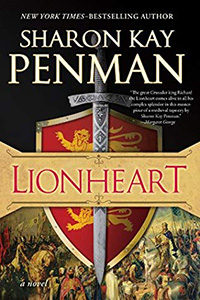Books to Counteract Certain Toxins You May Have Read
remedy (n.) c. 1200, “cure for a disease or disorder;
means of counteracting an evil,” from Anglo-French
remedie, Old French remede “remedy, cure” and
directly from Latin remedium “a cure, remedy, medicine,
antidote, that which restores health”
A medicine or treatment for a disease or injury,
a means of counteracting or eliminating something undesirable.
~Oxford English Dictionary
In one sense, of course, all the books on all these lists are remedies, literary pharmaceuticals to redress a temporary imbalance in the mind or heart or imagination. Some titles I suggest as specific tonics for low spirits, others might open a window in a mind grown stale, others may help us navigate grief, or rediscover wonder.
Sometimes, however, it’s not just a situational or emotional imbalance that needs to be adjusted; sometimes, more urgently, actual healing from sickness or injury is required—a kind of antivenom must be administered. Lucy, after the Battle of Beruna in The Lion, the Witch and the Wardrobe, brings many of the fallen back from the brink of death with her healing cordial, distilled from the fire-berries that grow on the mountains of the sun.
After the battle of Pelennor Fields in Tolkien’s The Return of the King, when many have been grievously wounded by the poisoned weapons of the enemy and Faramir is close to death, Aragorn takes leaves of an herb called kingsfoil, breathes on them, crushes them in his hand and casts the leaves into bowls of hot water, “and at once all hearts were lightened.” Breathing the healing steam, Faramir miraculously awakens from his fever.
Not having kingsfoil or Lucy’s cordial at hand, I have only books at my disposal. But sometimes books can heal, can protect us from threats to heart and mind, can at least teach us how to recognize a clear and present danger. Eustace, in Lewis’ The Voyage of the Dawn Treader, has read only “the wrong sort of books” and so doesn’t recognize a dragon when he comes across it and has no defense against it. Eustace has to learn the hard way what stealing a dragon’s gold can cost.
Sometimes we all, like Eustace, need to be un-dragoned.
And sometimes when the malaise has been caused by a book, a book can be the remedy.
Have you ingested something nasty by Philip Pullman, that explicitly and aggressively evangelical atheist who in His Dark Materials mocks Christianity and declares the death of God, who scorns The Lord of the Rings as “infantile” and the Chronicles of Narnia as “morally reprehensible”?
Antidote:
Read some—almost any—of the reviled C.S. Lewis or J.R.R. Tolkien, quick.
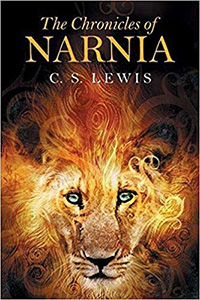
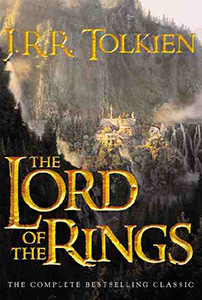
And check these out (don’t just take my word for it):
Far from Narnia in The New Yorker
The one almighty problem with Philip Pullman’s storytelling in The Spectator
“The Golden Compass” and Catholic “nitwits” in America: The Jesuit Review
Did you get caught up in George R.R. Martin’s series Game of Thrones, seduced by his brilliantly inventive alternative world where virtue is always punished and goodness always scorned as weakness? Were you tangled in its web of pornography disguised as fantasy, misogyny and rape disguised as social realism, violence and debauched cynicism upheld as a politically astute means to a Machiavellian end? Did you end up with a really bad taste in your mind?
Full confession: I deliberately did not see one minute of the HBO franchise, and only managed to read two and a half of the books before giving up in disgust, but one doesn’t need to eat a whole apple to know when it is rotten.
For a thoughtful review of Game of Thrones (as well as Philip Pullman’s His Dark Materials), read:
Vice and Fire in First Things
Antidote:
Find romance, glory, honor, fidelity, hope, courage, and integrity (as well as treachery and cruelty); find real kings and queens again, embroiled in actual political intrigue, military strategy, and noble enterprise (without the sour aftertaste of pornographic violence and brutal misogyny) in the much more brilliantly realized (and much more historically accurate) medieval world of the historical novels of King Richard I A King’s Ransom and Lionheart by Sharon Kay Penman.
Have you swallowed the poisonous “objectivism” of The Fountainhead or Atlas Shrugged by Ayn Rand, who insisted that unfettered self-interest is good and altruism bad, that selfishness is a moral imperative?
Antidote:
Read these online articles to clear your mind and reset its compass:
Libertarianism’s Iron Cage in Commonweal
Ayn Rand and Aristotle in Commonweal
The Virtue of Stupidity: A Critique of Ayn Rand and Objectivism in Owlcation
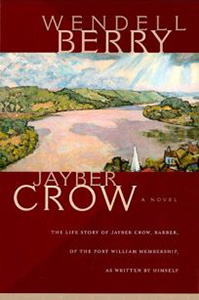 And then cleanse and refresh your imagination with the quiet large heart of Jayber Crow by Wendell Berry, which turns all Ayn Rand’s assumptions upside down and inside out. In Port William, a small Kentucky town surrounded by farms, Jayber is the bachelor barber. He comes to understand that he has a pivotal choice to make in his life and the life of the town: he can avoid taking any responsibility for his neighbors, the community and the land (and thus become an agent of and complicit in their destruction) or he can give himself silently and invisibly in sacrificial one-sided fidelity to the woman he has always loved (married to a vain and self-serving man—a guy who would definitely be a fan of Ayn Rand), and to the town and all its people. It’s more than a pretty strange love story though: Berry plays with the costly freedom we all have to choose to be faithful—virtually wedded—to the land and to our neighbors—or to divorce ourselves from the earth and from each other, with tragic consequences. The choice is ours.
And then cleanse and refresh your imagination with the quiet large heart of Jayber Crow by Wendell Berry, which turns all Ayn Rand’s assumptions upside down and inside out. In Port William, a small Kentucky town surrounded by farms, Jayber is the bachelor barber. He comes to understand that he has a pivotal choice to make in his life and the life of the town: he can avoid taking any responsibility for his neighbors, the community and the land (and thus become an agent of and complicit in their destruction) or he can give himself silently and invisibly in sacrificial one-sided fidelity to the woman he has always loved (married to a vain and self-serving man—a guy who would definitely be a fan of Ayn Rand), and to the town and all its people. It’s more than a pretty strange love story though: Berry plays with the costly freedom we all have to choose to be faithful—virtually wedded—to the land and to our neighbors—or to divorce ourselves from the earth and from each other, with tragic consequences. The choice is ours.
(You might want to check out The Ethics of Jayber Crow in Mere Orthodoxy.)
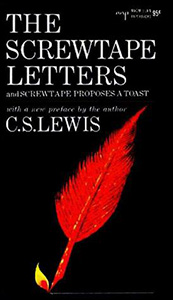 And as a kind of fog-lifting tonic, you could rinse your mind with C.S. Lewis’ satiric The Screwtape Letters—a short volume of letters of advice from a senior demon (Screwtape) to a junior (Wormwood), about the best way to ensure that a human soul’s choices are set upon a way that leads to Hell instead of Heaven. Screwtape’s inverted values—in which sin is admirable, purity damnable, and God’s love utterly incomprehensible—are an unmasking of the lies of “objectivism,” and his devilish insights into human psychology are both witty and profound.
And as a kind of fog-lifting tonic, you could rinse your mind with C.S. Lewis’ satiric The Screwtape Letters—a short volume of letters of advice from a senior demon (Screwtape) to a junior (Wormwood), about the best way to ensure that a human soul’s choices are set upon a way that leads to Hell instead of Heaven. Screwtape’s inverted values—in which sin is admirable, purity damnable, and God’s love utterly incomprehensible—are an unmasking of the lies of “objectivism,” and his devilish insights into human psychology are both witty and profound.
Were you (it’s okay) bitten by the vampires in the young-adult Twilight books by Stephenie Meyer, in which a drop-dead gorgeous vampire preys upon a young girl and persuades her to join the ranks of the undead?
I’m not the only one who thinks that their “romance” has many of the hallmarks of an abusive relationship:
Relationship Violence in “Twilight” in Psychology Today
The most troubling aspect of the spineless, passive, whining, self-pitying, sneaking teenage protagonist Bella (of whom I am clearly fond) is not her petulant languor or her crush on the aforementioned irresistible vampire, or even her willingness to be part of an abusive relationship, but her longing to surrender her human nature altogether, and become a vampire, too. Not only does she consistently deceive her father in order to meet her Edward, she becomes contemptuous of the limitations of human life; she longs to live forever, with the deathless beauty of the vampires; and she is impatient to leave all merely human embodiment and community behind.
What a perilous message to send to young girls and young women, already receiving so many pernicious cultural messages about their own freedom and agency, body image, the horrors of aging and dying, and the lure of glamorous young love that lasts forever.
Full confession: when I read the first of these books (when my own daughters were young), I was initially caught up in the sweet teen romance, recognizing from my own youth the seductive power of the Cinderella fantasy of a prince who will rescue the damsel from all distress, impressed that Meyer had written a wildly successful series for tweens that eschewed sex and drugs and alcohol. It took even my adult mind a while to see that parental deception, manipulative sexual arousal, rampant sexism, and addictive desires as dangerous as drugs were indeed in full play.
Antidote:
Bite back with the wild wolves of Maggie Stiefvater’s Wolves of Mercy Falls trilogy: Shiver, Linger, and Forever.
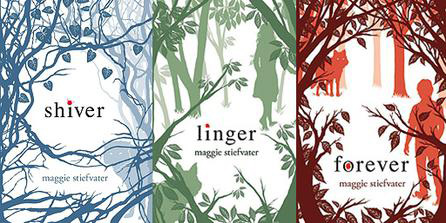 Maggie Stiefvater’s lyrical and poignant award-winning trilogy also features teen romance—with werewolves in this case rather than vampires—but these books introduce us to characters who are turned into wolves without their consent and long to return to the human identity and community that has been stolen from them. These books are not only far better written than the Twilight Saga, but more nuanced and layered, more sympathetic to real adolescent issues, touching on not only what it means to be young and human and alive, but realizing how precious that really is.
Maggie Stiefvater’s lyrical and poignant award-winning trilogy also features teen romance—with werewolves in this case rather than vampires—but these books introduce us to characters who are turned into wolves without their consent and long to return to the human identity and community that has been stolen from them. These books are not only far better written than the Twilight Saga, but more nuanced and layered, more sympathetic to real adolescent issues, touching on not only what it means to be young and human and alive, but realizing how precious that really is.
Literary Recommendations for All Sorts of Times and States of Mind
- Books for spiritual growth and exploration (some classics, some obscure titles, some for seekers and beginners, some for those advanced in prayer: all tried and true guides)
- Books when you need something light, nourishing but easy to digest (when you’re convalescing, tired of winter, feeling weary or blue)
- Books that explore what it means to be human (or not)
- Books about books . . . and bookstores and libraries and reading and writing
- Novels that explore religious questions, celebrate faith, and may even baptize the imagination
- Books that enlarge the world, broaden the horizon (thought-provoking, maybe unsettling, on social issues, different global or cultural perspectives)
- Books for armchair exploring
- Detective novels with a twist
- Books about grief and loss
- Books to counteract certain toxins you may have read
